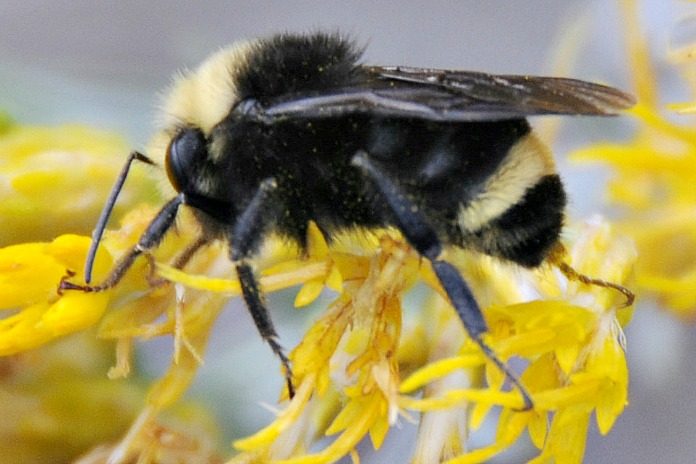
National Pollinator Week (June 18-24) in Oregon was a huge success in 2018, according to the Oregon Department of Agriculture, with over 20 events hosted across the state.
But just five years ago, National Pollinator Week was marked by an incident where tens of thousands of bumblebees were found dead in a Wilsonville parking lot as a result of a pesticide application to linden shade trees.
Today, however, the bees are back visiting the shade trees in Wilsonville, as Oregon Department of Agriculture (ODA) entomologist Sarah Kincaid observed, “We have quite a bit of bumble bee activity today, on the very same trees where thousands of bumblebees died five years ago.”
A number of things have changed in five years. For one thing, ODA enacted a permanent rule prohibiting the use of any product containing four neonicotinoid insecticides on Tilia species (including linden trees), regardless of application method. When Rose Kachadoorian of ODA’s Pesticides Program was asked why the rule included the phrase “regardless of application method”, she responded that there were also bee deaths associated with soil drench, basal bark, and tree injection applications, not just foliar applications.
ODA is also working on educating the public on how to report pesticide incidents quickly, and has developed a new webpage explaining how to report a suspected pesticide-related bee kill.
The Oregon Bee Project is a multi-agency initiative led by the Oregon Department of Agriculture, Oregon State University Extension, and the Oregon Department of Forestry. This week, after a year of engagement with the public and stakeholders, the Oregon Bee Project released its Strategic Plan for Keeping Bee Pollinators Healthy (2018-2020). The Strategic Plan outlines how Oregon will continue its efforts to protect wild and managed bees.
Over the next two years, Oregon will be ramping up efforts to protect bees from pesticide exposure, increase habitat for bees, reduce the impacts of new diseases and pests on bees, and expanding our understanding of the over 500 species of bees in Oregon.
“What we have learned is that many Oregonians all across the state, including farmers, homeowners, organizations, and agencies have already been working to protect bees; mostly on their own and with little recognition,” said Gilbert Uribe, from ODA’s Pesticides Program and member of the Oregon Bee Project Steering Committee. He points out that the Oregon Bee Project “connects the dots among those individual efforts, making them part of a coordinated statewide effort”.
For more information please contact Gilbert Uribe 503-986-4752.








